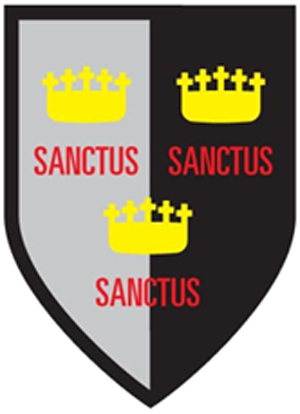Intent
At All Saints Primary School, our children are SCIENTISTS!
Our intent is to provide every child with a broad and balanced Science curriculum that empowers them to confidently explore and discover the world around them, leading to a deeper understanding of our environment.
We aspire for our children to develop a love for science, nurturing their ambitions to become astronauts, forensic scientists, toxicologists, microbiologists, and more—without limits to their dreams.
To achieve this, we focus on exciting, hands-on experiences that spark curiosity and encourage questioning. Our goal is for these stimulating and challenging activities to help every child secure and expand their scientific knowledge and vocabulary, fostering a genuine passion for learning.
We want our children to remember their science lessons at All Saints, cherishing these experiences and embracing the scientific opportunities presented to them!
Implementation
At All Saints Primary School, teachers cultivate a positive attitude toward science learning, reinforcing the expectation that all pupils are scientists capable of achieving high standards and articulating their understanding using accurate scientific vocabulary.
Our science curriculum is designed with a progressive approach that enables students to achieve a deeper understanding and interconnected knowledge over time. In Early Years, children begin by exploring the natural world, engaging in observations, conducting simple tests, and learning a wide range of vocabulary that lays the groundwork for scientific concepts built upon in Key Stage 1 and 2.
Children develop their scientific enquiry skills through various opportunities to: observe over time, seek patterns, identify, classify, group, plan and conduct fair and comparative tests, and research using secondary sources. Through these activities, children learn to work scientifically by asking questions, planning enquiries, closely observing, measuring, gathering and recording results, presenting findings, interpreting data, drawing conclusions, making predictions, and evaluating their enquiries. Pupils collaborate to conduct experiments and analyze results, sharing their findings with partners, small groups, or the whole class. Students with Special Educational Needs receive tailored support through specific planning, scaffolding, and Quality First Teaching to ensure substantial progress.
Our spiral curriculum allows for frequent opportunities to revisit prior learning, enabling children to recall and apply their knowledge to new contexts. Each year group has a clear progression of skills and knowledge aligned with the objectives and aims of meeting attainment targets at the end of Early Years, Key Stage 1, and Key Stage 2.
Pupils will develop practical science skills through investigations and continuous provision activities in Early Years, which can be adult-led or child-initiated to deepen their understanding of scientific concepts. This focus continues throughout the year, with skills and questioning evolving to enhance knowledge and attainment. In Key Stage 1 and 2, science is timetabled weekly, with a new unit covered each half term. Regular monitoring, along with pupil and staff feedback, ensures consistency across the curriculum.
Knowledge Organisers outline key vocabulary and concepts for each unit, as well as the scientific enquiry areas that will enhance learning. These organisers help children build their vocabulary and understanding of key concepts and enquiry types over time. They are displayed in classrooms, included in student books, and shared with families.
Impact
Using an enquiry-based approach, we assess specific objectives throughout the science curriculum, allowing teachers to evaluate progress against the National Curriculum. Assessment occurs during instruction, and pupils receive support and scaffolding to help them meet objectives.
Our pupils will leave All Saints as inquisitive and critical thinkers, confident in their knowledge and prepared to study science at Key Stage 3. They will understand the importance of caring for our environment and appreciating all aspects of the natural world.
Expected impacts include:
- Pupils achieving the “Understanding the World – Natural World” Early Learning Goal by the end of Early Years, with science objectives fully embedded.
- Development of children’s scientific knowledge and skills.
- Building resilience by viewing failed experiments as learning opportunities and successes as stepping stones for further knowledge.
- Meeting the requirements of KS1 and KS2 National Curriculum objectives.
- Identifying the three strands of science—Biology, Chemistry, and Physics—with examples from each.
- Understanding the need for controlled experiments and fair testing.
- Awareness of significant scientific figures and modern scientists, along with their contributions to our lives.
- Becoming resilient, independent, and curious scientists who ask questions and seek answers.
- Enthusiasm and motivation for scientific learning.
- Utilising outdoor learning when appropriate for science lessons.
- Engagement with STEM ambassadors and the wider community through regular trips and visits.
- Awareness of diverse scientific careers and pathways, fostering a desire to pursue STEM subjects in secondary school.
- A lasting love and enjoyment of science.
Moderation will occur termly, and children’s work will be regularly monitored to ensure progression.
